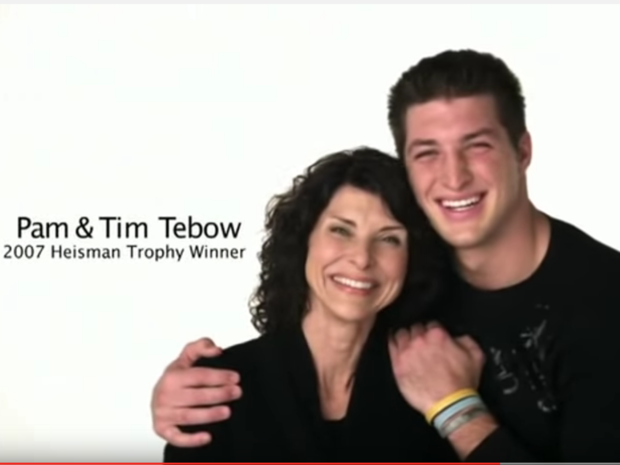5 of the most controversial Super Bowl commercials
The battle for the Super Bowl isn't just waged on the field: Dozens of advertisers are collectively spending more than $350 million to reach the game's massive audience.
The Super Bowl remains a rarity on TV, a broadcast where people tune in not only for the main event but also for the commercials. But that combination -- a huge audience and one that's primed to listen to TV ads -- can sometimes prove to be a mixed blessing for brands, given the enormous pressure to score a touchdown with a memorable ad.
When an commercial succeeds, it can both charm viewers and change the way consumers think of a brand. Witness Apple's "1984" commercial, which broadcast the message that the computer company was breaking away from colorless rivals. But for every "1984," there's at least one advertiser that wants to succeed on a similar scale but falls far short. Sometimes, those ads make viewers cringe, spark boycotts or calls for the commercial to be yanked.
The Super Bowl 50 advertisers as a whole may swing toward humor this year, contrasting with last year's game, which tended to have a sombre tone, said Peter Daboll, chief executive of Ace Metrix.
Last year's group of commercials "lost their impact collectively because there were so many" serious-minded ads, he noted. "I think they will shift back to a more lighter tone to get people to pay attention, to have surprises and not be as preachy."
Merely bad commercials often lose the plot because they're trying to push the envelope, often with humor. One notorious spot came from Snickers in 2007, which showed two mechanics snacking on opposite ends of a candy bar, meeting in the middle with a kiss. The men, shocked, try to prove their heterosexuality by tearing out their chest hair and, in one version, fighting. The spot was condemned as homophobic.
Controversial commercials, on the other hand, often shoot for a big statement but come across as stern, tacky or worse. Last year's Super Bowl included one commercial that left many viewers upset and troubled.
Read on to learn about that commercial and four other controversial Super Bowl ads.
Super Bowl 50 is on Sunday, Feb. 7 on CBS.
Nationwide, 2015
Nationwide wanted to inform and educate when it bought a spot during the 2015 Super Bowl. Its message? About the dangers of childhood and the risks of death that lurk around every corner. If that wasn't depressing enough, the ad was narrated by a little boy who waxed nostalgic about all the things he would never do because "I died from an accident."
Viewer reaction wasn't kind, with some pointing out that the commercial served as a heartbreaking reminder to parents who had lost children. Others felt it was inappropriate for the venue, and some called it the "most depressing" Super Bowl ad ever.
Focus on the Family, 2010
Featuring football star Tim Tebow, this commercial from the conservative Christian group Focus on the family had an upbeat tone. Tebow's mother talked about her "miracle baby" and about how "he almost didn't make it into this world."
That may seem innocuous, but what the ad doesn't mention was that Tebow's mother was advised by doctors to abort him because of an illness. That background created controversy over the ad's message, which some interpreted as a pro-life commercial, sparking protests from the National Organization of Women and other groups.
E-Trade, 2007
The financial-services company wanted to get across an important idea to potential customers: protect your assets by searching for the best banking deal possible.
Unfortunately, E-Trade took a scare tactic approach, showing customers getting held up by their own bank, including workers wearing plastic animal masks. With terrorism on many Americans' minds, this tactic was simply more of a turn-off than an incentive to check out the company's services.
GM, 2007
General Motors was trying to tell consumers that it had a new focus on quality. What better way to get that across than drive an auto-factory robot to suicide?
The commercial featured an adorable robot dropping a screw while on the assembly line, then getting fired for the offense. The machine has a downward spiral, failing to find work and ending up on a bridge, where he jumps. But hey, the robot then wakes up, because it was just a dream (er, nightmare?) inspired by his obsession with quality.
No surprise that this ad sparked complaints from viewers and the American Foundation for Suicide Prevention.
Dodge, 2010
This spot featured men staring at the camera in defeat while a narrator voices their inner thoughts about their lives, along the lines of, "I will be civil to your mother, I will put the seat down." The message of the ad? "How unbearable it is for men to listen to the opinions of, and on occasion respect the opinion of, women," according to Slate.
The commercial was ostensibly selling the Charger as a vehicle to loosen up beaten-down men, but the ad came under fire as misogynistic and misguided.
